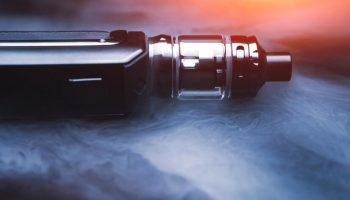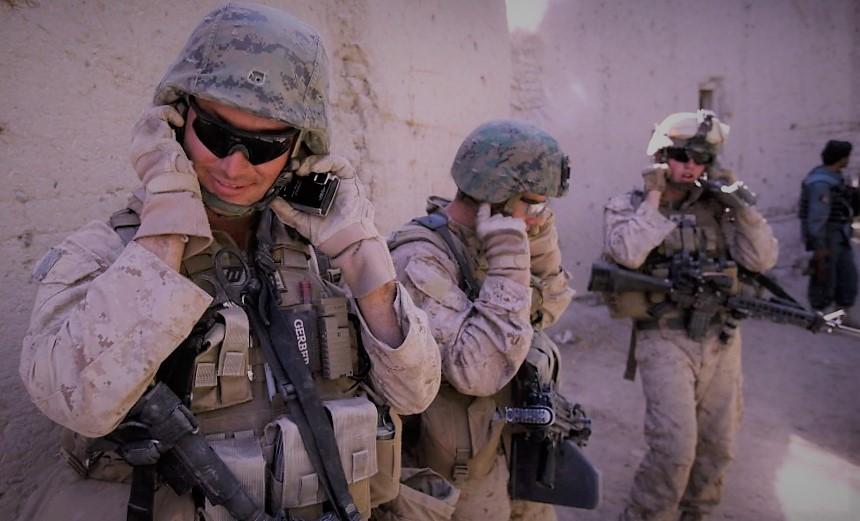It used to be that physical injuries were the top category veterans sought care for at the VA, but there are two invisible traumas that have steadily increased over the past 20 years.
Even though the Department of Defense has made tremendous strides in this area, tinnitus, deafness (severe, persistent ringing in the ears), and hearing loss continue to be occupational hazards for those in the military.
While there are many things that can lead to hearing loss, certain aspects of being a soldier make you more susceptible to it.
Don’t Like The Sound Of That?
It turns out that almost every noise a soldier experiences that are related to living on a military base or being stationed in a combat zone is bad for your ears. Every weapon used in combat, aside from bayonets and crossbows, produces sound at least 55dB higher than the 85dB “safe” range.
Airplanes and humvees might be within the safe zone but when you are exposed to them on a constant basis, these sounds also become hazardous to your hearing.
In comparison to where normal speech falls, 60dB, exposure to sounds that are two to three times as loud can cause serious harm pretty quickly. By the time you reach the 140dB level a gunshot puts out, your risk of permanent damage comes within a window of about 30 seconds. This is if you’re not wearing hearing protection.
How You Can Minimize The Damage

Being able to hear is critical in the military. In fact, you can’t even be accepted if you don’t pass the initial screenings. So, naturally, keeping hearing in-tact is a priority.
Because the DoD is aware of the risks associated with noise exposure, they have taken precautions to protect soldiers. Hearing conservation programs have been in place since 1948 and continue to demonstrate a decrease in hearing loss experienced by soldiers.
Weapons have also advanced. Some are equipped with suppressors not only to minimize the chances of being spotted by an enemy but to buffer the impact on the shooter and those nearby. Even more importantly, though, are the advances in hearing protection.
The use of foam and flange style earplugs is still commonplace, but as technology advances, so do earplugs. Smart, as in digital, hearing protection is up and coming and soon every soldier could be outfitted with INVISIO’s newest gadgets known as TCAPS.
That’s short for tactical communication and protective systems and these fancy earplugs can sense environmental noise and selectively adjust the sound level to reduce damage. Using bone conduction, they can also amplify lower frequencies simultaneously, giving soldiers the ability to still do their job effectively while minimizing noise exposure.
What’s The Deal With CAEv2?
For years, the military-issued 3M CAEv2 combat earplugs were thought to have been providing optimal protection. Now that 3M is under fire for providing faulty equipment, the upgrade to the latest technology will likely happen sooner rather than later.
Back in 2015, a competitor of 3M made a very public accusation that the distributor was knowingly providing faulty hearing protection to the US Military and had been for over a decade. 3M had the sole contract for the DoD and between 2002-2015, hundreds of thousands of soldiers received the CAEv2, or combat arms earplugs, as part of their standard-issue safety equipment.
Over 200,000 of those veterans have filed a lawsuit indicating that due to the earplugs not functioning properly, they have permanent hearing loss and/or tinnitus. Ten of these cases have concluded, with half of the plaintiffs receiving significant compensation for damages.
The remainder of the cases are still pending and are being handled as part of a larger group of suits under the jurisdiction of a federal court in Florida.
The goal is to win enough settlements on behalf of individual veterans in order to convince 3M to offer to settle with the rest of them outside of court. So far, though, 3M shows no indication of backing down despite its loss of the initial False Claims case with the Department of Defense.
It should be noted that even though 3M won 5 of the 10 cases, they were not able to successfully prove their innocence. Their defense attorneys won their cases because the plaintiffs weren’t able to prove their hearing loss as a result of faulty earplugs.
Hearing loss is an invisible struggle faced by millions of people and due to high levels of noise exposure, soldiers fall into a higher risk category for hearing-related injuries. The best way to avoid such damages is to follow the directions for proper usage and consistently utilize the hearing protection provided to you.
Read Also:




























